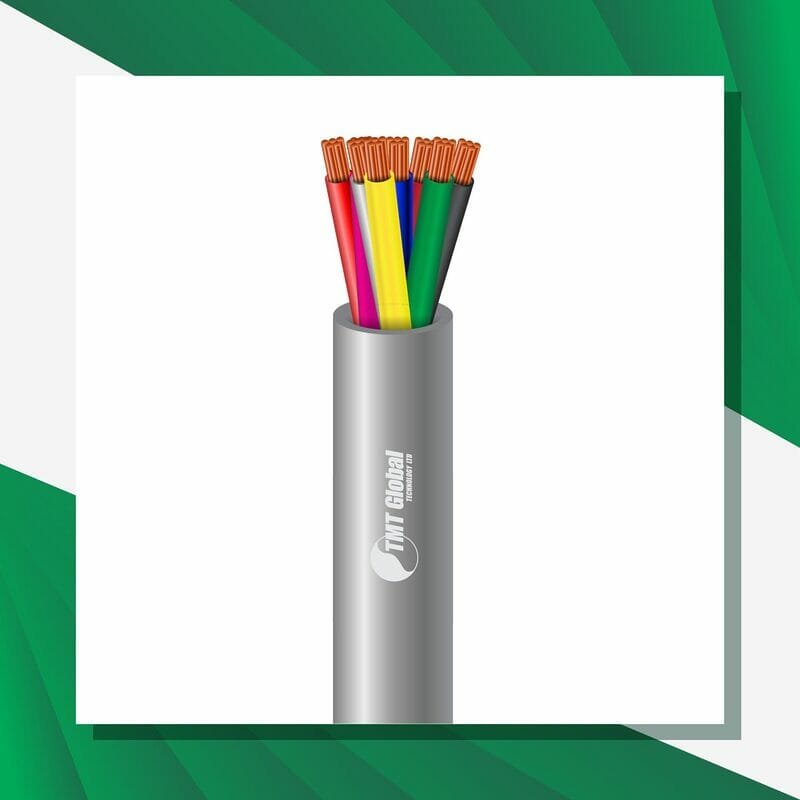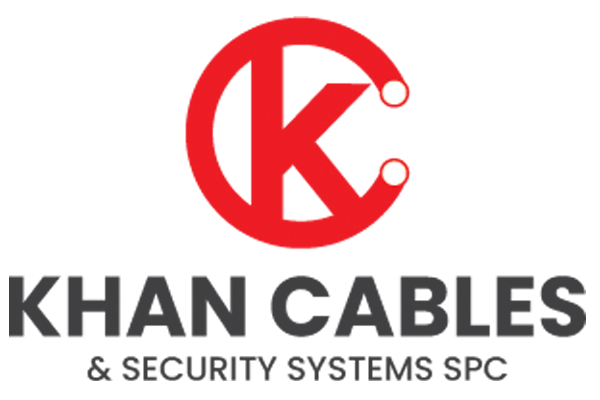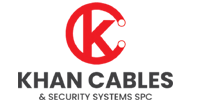Understanding the Central Clock System by Khan Cables
Introduction to Central Clock Systems
Central clock systems serve as essential tools for maintaining synchronized time across various settings, including educational institutions, healthcare facilities, and corporate environments. These systems consist of a master clock, which serves as the primary timekeeper, and multiple slave clocks that receive time data from the master. This configuration ensures that all devices reflect the same accurate time, thereby facilitating effective communication and coordination within an institution.
The primary purpose of a central clock system is to eliminate discrepancies in timekeeping, which can lead to confusion and inefficiencies. In environments such as schools, precise time management is critical for scheduling classes, managing breaks, and ensuring that events run smoothly. Similarly, in hospitals, synchronized time is vital, as it helps in coordinating staff shifts, patient care activities, and medical procedures, all of which depend on accurate and reliable timekeeping.
Central clock systems utilize various technologies to enable real-time synchronization. Wired systems may employ a network of cables connecting the master clock to the slave units, ensuring seamless communication. Alternatively, wireless systems might use radio signals or internet connectivity to update time across devices effortlessly. Regardless of the technology used, the core objective remains the same: to provide a unified time reference that enhances operational efficiency.
This concept of synchronized timekeeping not only benefits internal operations but also enhances safety. For example, during emergency situations, having a synchronized timing system can dramatically improve response times. In conclusion, as we navigate the complexities of modern life, the significance of central clock systems in fostering organized and efficient environments cannot be overstated.
The Role of Khan Cables in Central Clock Systems
Khan Cables has positioned itself as a pivotal player in the realm of central clock systems, dedicating its expertise to the design and manufacture of reliable time synchronization solutions. The company’s mission focuses on delivering precision and dependability in timekeeping technology, recognizing the fundamental importance of accurate time for various institutions, including schools, hospitals, and public infrastructures. The vision of Khan Cables revolves around innovation and quality, ensuring that their central clock systems not only meet but exceed industry standards.
At the heart of Khan Cables’ offerings is their commitment to utilizing advanced technology. The company integrates cutting-edge hardware and software components which ensure seamless synchronization across multiple devices. These central clock systems employ NTP (Network Time Protocol) to guarantee that all connected clocks remain in perfect unison. This method is crucial, as it eliminates the discrepancies often encountered in analog timing systems, offering a superior solution that maintains accuracy even across vast networks.
Moreover, Khan Cables emphasizes user-friendly interfaces and robust design in its products. This dedication to functionality ensures that users can easily manage and monitor their central clock systems. The incorporation of features such as real-time status updates and remote management options allows administrators to oversee the synchronization across various platforms effortlessly. In addition, Khan Cables prioritizes durability; their systems are developed to withstand the rigors of various environments, thereby minimizing maintenance efforts and enhancing longevity.
Through this combination of innovative technology and customer-centric design, Khan Cables has established itself as a trusted manufacturer in the central clock systems domain. Their products not only reflect the company’s core values of precision and reliability but also contribute significantly to the overall efficiency of time management in diverse settings.
Benefits of Using a Central Clock System
Implementing a central clock system offers numerous advantages that contribute to overall organizational efficiency and enhanced communication. One of the most significant benefits is the synchronization of time across various departments and locations. With a central system in place, all clocks within an organization can be coordinated to display the same accurate time, which eliminates discrepancies often caused by individual clock maintenance. This uniformity reduces confusion, promotes punctuality, and enables smoother operations, particularly in environments where timing is critical, such as healthcare facilities, educational institutions, and manufacturing units.
Moreover, a synchronized clock system fosters improved communication among employees. With everyone adhering to the same time standards, meetings and appointments can be scheduled with greater accuracy, reducing the chances of overlap and missed opportunities. This improved time management can directly impact productivity levels, as teams work more cohesively without the hindrance of time misalignments. The central clock system also allows for real-time updates, which can be essential during critical operations that depend on precise timing.



In addition to operational efficiencies, cost savings can also be realized through the use of a central clock system. Traditional standalone clocks often require regular battery replacements and maintenance, which can lead to increased operational costs. A centralized system typically uses power from a single source, reducing energy consumption and the frequency of maintenance visits. Many modern systems are designed with energy efficiency in mind, utilizing LED technology and other sustainable practices to further minimize costs. As a result, organizations can enjoy both financial savings and enhanced performance by investing in a central clock system.
Key Features of Khan Cables’ Central Clock Systems
Khan Cables’ Central Clock Systems are engineered to excel in various settings, ranging from educational institutes to corporate offices. One of the standout features is their user-friendly interface, designed to facilitate ease of use for all personnel, regardless of technical proficiency. The intuitive controls ensure that users can easily navigate settings, adjust time formats, and manage operational schedules, all at the touch of a button. This focus on accessibility helps streamline daily operations in any environment where time coordination is essential.
In addition to their ease of use, Khan Cables’ systems offer robust wireless connectivity options. These options eliminate the necessity for cumbersome wiring, allowing for a more versatile installation in diverse physical spaces. The wireless technology not only enhances aesthetic appeal but also simplifies the deployment process, as users can position clocks and controllers in their ideal locations without concern for power outlets or cable runs. This flexibility is particularly beneficial for temporary setups or spaces with unconventional layouts.
Another notable feature of Khan Cables’ Central Clock Systems is their integration capabilities. These systems are designed to seamlessly connect with existing infrastructure, such as network systems, fire alarms, and public address systems. This interoperability allows facilities to unify their communications and scheduling, ensuring synchronization across various devices and enhancing overall operational efficiency.
Furthermore, customization possibilities represent a key advantage for clients. Khan Cables understands that different environments require distinct functionalities, and therefore, they offer adaptable solutions tailored to meet specific user requirements. Customers can select clock designs, adjust display sizes, and configure features according to their unique needs. This customization not only improves user experience but also ensures that the clock systems align with the branding and operational demands of diverse establishments.
Implementation Process of Central Clock Systems
The implementation of a Central Clock System from Khan Cables involves a structured approach to ensure seamless integration and optimal functionality. The process begins with an initial assessment where the specific needs and requirements of the facility are thoroughly reviewed. This assessment includes a comprehensive analysis of the existing timekeeping systems, infrastructure, and the anticipated scaling of the central clock system.
Following the assessment, the next phase is planning. During this stage, a detailed project plan is developed, outlining the scope of work, timeline, and budget. This plan serves as a roadmap for the entire implementation process and includes considerations for the necessary hardware components, such as timing devices, synchronization mechanisms, and cabling arrangements. Collaborators from Khan Cables will also work with the facility’s stakeholders to ensure transparency and alignment throughout the planning phase.
Once the planning is finalized, the installation process begins. Qualified technicians from Khan Cables will execute the installation of the central clock system according to the laid out plan. This phase involves placing clock units in strategic locations to maximize visibility, running necessary cabling, and configuring the synchronization software. The technicians will conduct quality checks during installation to verify that the hardware is functioning as expected and is precisely synchronized across all clock units.
After installation, the focus shifts to ongoing support and maintenance. Khan Cables provides continuous technical assistance, including troubleshooting and software updates, to ensure the system remains effective and up to date. Training sessions may also be offered to facility personnel to familiarize them with the new system’s operations. This structured implementation process is designed to create a robust and reliable central clock system, ensuring that time synchronization across the facility is consistent and efficient.
Case Studies: Success Stories with Khan Cables’ Systems
The integration of Khan Cables’ central clock systems into diverse organizations has led to notable improvements in operational efficiency and time management. Various case studies highlight the successes experienced by institutions after adopting these advanced systems. One such case involves a large educational institution that struggled with time synchronization across multiple campuses. Prior to the implementation of Khan Cables’ central clock systems, students and staff faced confusion regarding class schedules, often leading to delays and instructional inconsistencies. After evaluating options, the institution opted to adopt the central clock system by Khan Cables, which provided a unified solution for timekeeping across all facilities. The results were significant: attendance rates improved, and the overall learning environment became more structured.
Another compelling case study highlights a manufacturing plant that operated under time-sensitive conditions. Management faced challenges with workflow and production schedules, hindered by outdated timekeeping practices. The installation of the central clock system revolutionized the plant’s operations by synchronizing work schedules and equipment timings. Employees reported enhanced coordination, which improved productivity levels by nearly 20%. This case demonstrates how the central clock system can address critical time management needs within a fast-paced environment.
A healthcare facility also benefitted immensely from adopting Khan Cables’ central clock system. In this case, disparate timekeeping methods hindered communication among departments, impacting patient care and overall efficiency. After the implementation of the unified system, the facility observed a decrease in operational delays and enhanced coordination of staff shifts. Patient satisfaction ratings improved significantly, showcasing how optimal time management through effective clock systems directly influences service delivery in critical sectors.
These case studies exemplify the transformative impact of Khan Cables’ central clock systems across various industries, addressing unique challenges and ultimately achieving measurable, positive outcomes.
Maintenance and Support for Central Clock Systems
Maintaining a central clock system is crucial for ensuring its optimal performance and longevity. Regular maintenance not only enhances the reliability of timekeeping but also minimizes disruptions caused by clock failures or inaccuracies. Routine checks are essential and should include verifying synchronization, inspecting wiring connections, and evaluating the overall condition of the system. By routinely monitoring these aspects, potential issues can be identified and addressed before they escalate, saving both time and resources.
In addition to physical checks, software updates play a vital role in the upkeep of central clock systems. Manufacturers frequently release updates to improve functionality, enhance security, and correct known bugs. Ensuring that the software is current is a significant step towards sustaining a fully operational system. System administrators should schedule regular intervals for these updates to maintain system integrity and performance.
Nevertheless, problems can arise despite diligent maintenance efforts. Common issues may include synchronization problems, network interruptions, or hardware failures. Troubleshooting these challenges typically involves methodically analyzing system logs, checking component connections, and testing individual elements of the setup. Documentation of past issues and their resolutions can serve as a helpful reference for future troubleshooting, enabling faster rectification of potential problems.
Khan Cables acknowledges the necessity of adequate support for its central clock systems. They offer comprehensive customer support options designed to address any concerns that might surface during and after installation. This can include remote assistance via phone or email, as well as on-site support from trained technicians. Khan Cables is committed to ensuring long-term satisfaction through these support services, ensuring that users can maintain a reliable central clock system with minimal disruption.
Comparative Analysis of Central Clock Systems
The central clock system market is characterized by a variety of offerings from numerous manufacturers. Among these, Khan Cables has established itself as a formidable player. When comparing Khan Cables’ central clock systems with those of its competitors, several factors come into play, including reliability, integration capabilities, ease of use, and overall design quality.
One notable strength of Khan Cables’ systems is their reliability. The company has invested heavily in research and development to ensure that their central clock systems consistently maintain accurate time across all connected devices. This is crucial in professional environments such as schools, hospitals, and industrial facilities where precision is paramount. Competing products often face issues related to synchronization, which can compromise operational efficiency.
In terms of integration capabilities, Khan Cables excels by offering systems that are compatible with a wide range of technology platforms. This flexibility allows organizations to implement the central clock system without extensive modifications to their existing infrastructure. Competitors often have proprietary systems that limit compatibility, resulting in additional costs and complexity for potential users.
When it comes to ease of use, Khan Cables provides an intuitive interface for monitoring and management that simplifies the operational experience. Users tend to favor systems that require minimal training, and Khan Cables delivers on this front. In contrast, some rival products come with complex interfaces, making them less user-friendly.
Lastly, the aesthetic design of the central clock systems from Khan Cables is often highlighted as a strong differentiator. The sleek and contemporary design ensures they integrate well into a variety of environments, appealing to institutions that prioritize both functionality and appearance. Competitor designs may lack this consideration, resulting in bulkier or outdated looking systems that detract from modern spaces.
Overall, the advantages of Khan Cables’ central clock systems in terms of reliability, integration, user-friendliness, and design set it apart from competitors, making it a notable choice in the central clock market.
Future Trends in Central Clock Systems
The realm of central clock systems is poised for significant transformation, driven largely by technological advancements and evolving user preferences. One of the most prominent trends shaping the future of these systems is the integration of the Internet of Things (IoT). As more devices become interconnected, the ability to synchronize timekeeping across various platforms will enhance operational efficiency. This shift not only facilitates real-time updates but also allows for greater flexibility in clock management, enabling users to control their systems remotely and efficiently.
Smart building technologies are on the rise, and central clock systems are likely to play a pivotal role in these developments. With an increasing emphasis on energy efficiency and sustainable practices, integrating central clock systems with building automation will enable optimized energy consumption for lighting and heating, thereby saving costs and reducing carbon footprints. This synergy between smart technologies and central clock systems is expected to drive more widespread adoption in commercial and industrial spaces.
Another salient trend is the customization and personalization of central clock systems. Users are increasingly seeking tailored solutions that fit their specific needs. This demand for personalized experiences may lead to innovations in software applications associated with clock systems that allow users to define preferences for alarms, time zones, and notifications. We may also see enhanced analytics capabilities, providing insights into time management and enabling organizations to make more informed decisions.
To remain competitive in the rapidly changing market, companies like Khan Cables are expected to continually innovate and adapt their offerings. By harnessing the power of emerging technologies and being attuned to user demands, central clock systems can evolve into more sophisticated solutions. These advancements will ensure that central clock systems remain not only relevant but also integral to modern operational frameworks.

